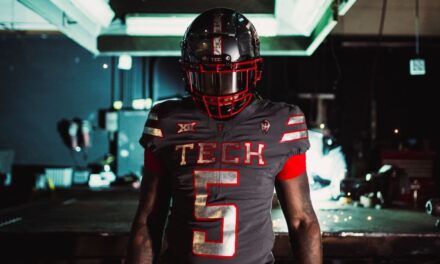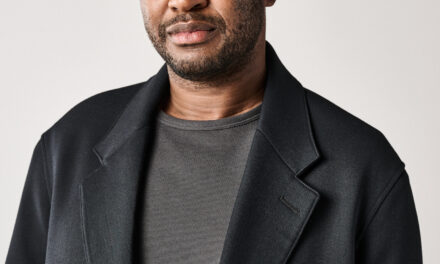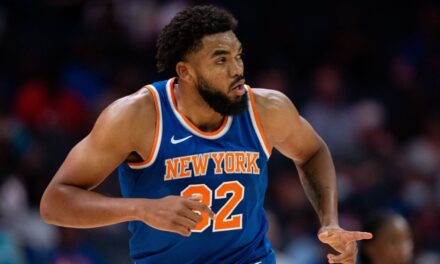
The number of young Black professionals and creatives is surging nationwide, driven by career opportunities, financial prospects, and pivotal economic changes. This dynamic shift sees many leaving their hometowns and college roots, seeking community and meaningful connections in new, uncharted territories. Enter Recess Kickball League (RKL), a vibrant, community-driven outlet where folks can meet, bond, and thrive.
The kickball league was born in 2020 amid the COVID-19 pandemic, fulfilling a need for safe human interaction during widespread isolation. What began as a casual meetup between five friends quickly blossomed into an official organization boasting over a dozen teams, extensive waitlists, divisions in New York and Los Angeles, and corporate brand partnerships—all while promoting physical activity. Recess Kickball League was founded by five friends living in the New York tri-state area: Christopher Thomas, Ermias Tessema, Emmanuel Maduakolam, Cristopher Jones, and Daemon “Tubbs “ Snead.

 Image: Alia Hiller.
Image: Alia Hiller.
“The genesis was in June 2020 during the pandemic. We were just looking for a way to come together in a safe manner,” shares Cristopher Jones. “Kickball was the first thing that came to mind because you could play and still have that six feet of distance. That was Juneteenth weekend. Then we played a bunch of pickup games in the park. Word started spreading like wildfire.”
As a culture, community has traditionally been rooted in school and the church. School continues to be a base for many, but as church attendance rates decline among Gen-Z, there have been calls for more people-focused spaces. On a summer Saturday afternoon in Brooklyn, New York, about 60 adults don bright neon shirts and bring a fun yet competitive energy to the kickball field. The players, rallying together, build connections reminiscent of college athletes. The venue’s impact extends to the broader community as non-players gather to spectate, bringing blankets, snacks, drinks, and card games. It’s a chance for many to unsubscribe from the typical party scene in New York and Los Angeles, enjoying time with friends while meeting new ones.
“After that first summer, we came together one Saturday, and there were about 30 people trying to play and another 40, maybe just watching, hanging out. It felt special in that moment—like, all right, it’s not just kickball. People want to come together,” says Christopher Thomas, reflecting on the league’s early days.
Competitive sports leagues are nothing new, as a simple web search will generate dozens of options in most major cities. However, the Recess Kickball League differs as it prides itself on inclusivity, community building, and fostering safe places for Black people. All players, regardless of gender, skill level, or athletic ability, are welcomed and encouraged to try out for the team. RKL also hosts league-wide mixers open to all players and supporters. Most teams also facilitate bonding via team game nights, happy hours, and more. For many transplants, this can serve as the core of their social ecosystem in an unfamiliar city.

 Image: Alia Hiller.
Image: Alia Hiller.
“Community is definitely at the forefront of what we do. Essentially, our north star pillars are community, playing, and fun. We want to stay grounded in those three ideas. There are plenty of competitive leagues or sports leagues in New York and around any major city. We didn’t want to necessarily emulate that. Our league wasn’t centered on competition; it was centered on getting together safely, being around loved ones, and meeting new people,” emphasizes Thomas.
RKL’s commitment to community extends to its partnerships and sponsorships. Ermias Tessema explains, “Me and CT are the trackers of the sponsors. We naturally started with community, going towards local community places like Aunts and Uncles in Flatbush. Lips Cafe was one of our first sponsors. We’ve had Wondaland—Janelle Monae’s label—as a sponsor. Another of our friends has a creative agency called 740 Project, which works with Atlantic Records and Sony Records. That’s how we started small and now, like trying to go for the biggest things to help us scale.”
Thomas adds, “I’d say 90% of the meetings that we’ve had or brand sponsors that we secured have been through our extended network. Somebody playing in the league connected us with either their job or a friend’s job, something to that effect. So it’s very organic.”
As RKL continues to grow, expansion to other cities is a natural consideration. Cristopher Jones discusses the approach, “People always throw cities at us, ‘Oh, you should do this in Chicago. You should do this in Philly.’ There’s always hesitation from us because we want the product to be quality—the same quality that you would get in New York or LA. For us to grow to additional cities, we would need an infusion of support from a brand. So I think for us to get there and for us to get to Atlanta and these other Black cities, we’re going to need some help.”

 Image: Alia Hiller.
Image: Alia Hiller.
Looking towards the future, the RKL team has ambitious goals. “The East Coast, West Coast meetup,” says Thomas. “We have a Western Conference. We have an Eastern Conference. So, ideally, naturally, that lends itself to a national championship game. That game could be an all-star game, but then also a national championship game,” adds Tessema. “We would ideally love to travel to a city in the center of the US. Naturally, you wouldn’t do that for one day. It feels like a weekend festival of RKL centered around an RKL game. But if there are DJs, creators, brands, and vendors in our community, we can bring all that together to form an RKL Championship Weekend.”
As the East and West Coast leagues continue to solidify, the potential for a micro-economy centered around RKL events becomes clear. This vision aims to drive towards a thriving community space that brings together sport, culture, and social connection.



